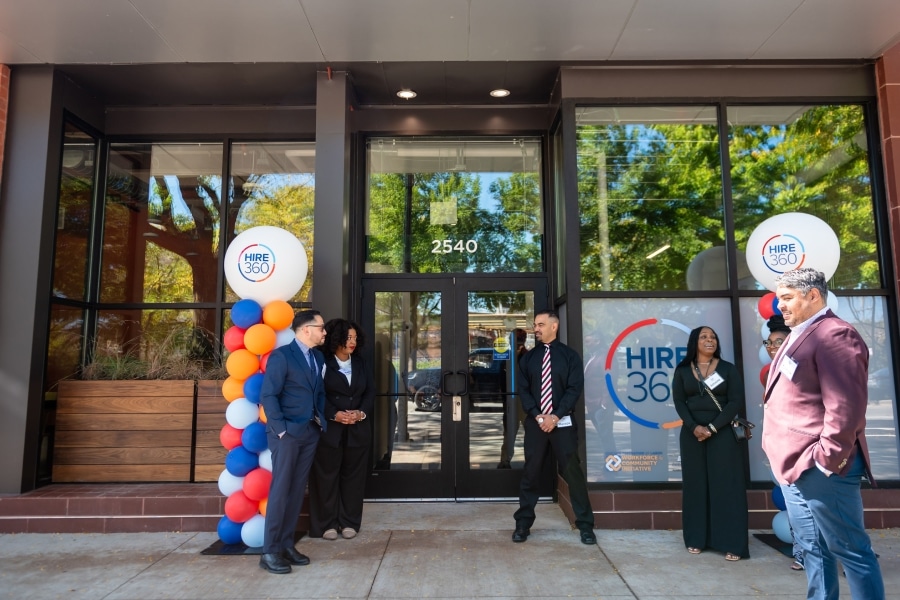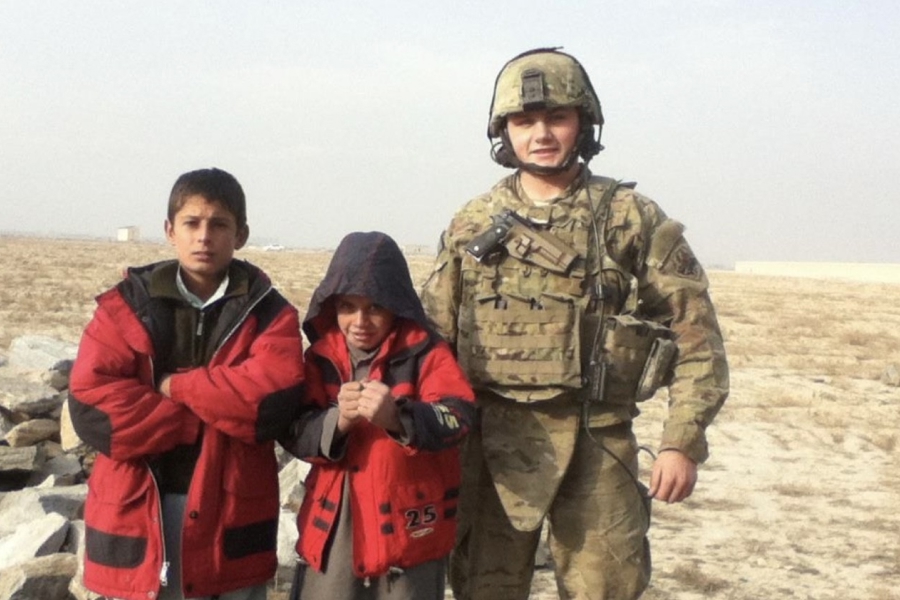In Curt Bramel’s family, military service is something family members just do. Bramel served for five years in the U.S. Navy and two years in the reserves in the 1990s. His father fought in the Vietnam War. His grandfather and great-grandfathers served. And so did Bramel’s son, who spent six years in the Army National Guard.
“Nobody ever told me to go,” Bramel said of enlisting while still in high school in rural Kentucky. “My dad didn’t want me to go. But I felt there was a calling. I can’t tell you what it is, a little voice that said, ‘You might enjoy the military,’ and it was one of the single best pivotal things I ever did in life.”
Across his service, Bramel embraced opportunities to work hard on shared missions with his fellow sailors, who all hailed from diverse backgrounds. Aboard massive ships, no different than “floating cities,” as he called them, Bramel mastered how to think and act quickly and strategically.
He learned how to lead from exceptional military leaders, who continued to mentor him even after he returned to civilian life. And he had the opportunity to explore the world where he found that most people, no matter where they’re from, just want to live productive lives surrounded by family. “The military is where I saw, firsthand, that 98% of the world is great,” he said.
Now senior director of global channel sales for Bluebeam, Bramel is navigating a successful decade-long corporate career. But he continues to serve by mentoring members of the military as they prepare for civilian life. It’s a way to return some of the benefits he’s received over the years.
“I can’t point to a single event that shaped my career,” Bramel said, “but rather I was fortunate that many great people stepped into my path to help coach and guide me along my career.”
Always volunteering
Bramel’s willingness to raise his hand supercharged his military career. After completing a two-year mechanical engineering program in the Navy, he volunteered for a big leap—taking an assignment in Japan.
After just a couple of weeks in Japan, he was deployed to the Middle East, where he continued to volunteer whenever new needs arose, including serving on a flight crew for helicopter operations. “Anytime there was a volunteer opportunity, whether it was security patrol or [something else], I volunteered for it,” Bramel said.

After more than two years of shuttling between Japan and the Middle East, he continued his service in San Diego and then Bremerton, Washington, where he took more engineering and program management classes through the Navy. He finished his active duty in 1996, staying in the reserves for two more years. The GI Bill paid for his undergraduate degree in finance and much of his MBA. “It 100% set the trajectory of my life,” he said.
Bramel’s career includes time in the Japanese automotive industry, as well as a financial planner and stockbroker, before moving into global sales roles, where his work gradually began focusing on technology. Now at Bluebeam, he works with reseller partners who take Bluebeam technology, adopt it into their portfolio and resell it to their own end users.
Bramel credits his background in the military in part for helping him pivot from selling tangible products to the theories, ideas and processes of software. While in the Navy, what he was doing wasn’t called artificial intelligence, but he was working in predictive modeling as he looked for trends in an engine room or with oil and gas chemistry. “Before AI was cool, you were using AI then, but you used it with a lot of paper and pencil,” he said.
Giving back
These days, Bramel, who is married with two adult children and two young grandchildren, lives in Lexington, Kentucky, and doesn’t have all that much spare time. “My kids give us a hard time. We just work,” said Bramel of himself and his wife. “We work when we’re not working.”
Bramel is involved in local politics, runs a real estate business with his wife and tends to a farm and weekend cottage outside of Lexington. And through a New York-based program, Bramel continues to serve, supporting members of the military as they prepare to return to civilian life.

Most of his mentees have never held a public sector job, negotiated a salary or bought a house. They’re typically bringing a spouse and kids with them. “There’s a lot of stress and anxiety on them coming out of the military,” he said.
Bramel serves as their professional coach, preparing them for life after the military—from how to interview for a job to advice on selecting retirement plans and health insurance. “I’ve had everything from intelligence officers assigned to me to pilots to infantry leaders,” he said. “It’s afforded me the opportunity to stay involved with the military community.” Looking back on life so far, he’d do nothing differently. “I’ve had an awesome life. My career’s afforded me more opportunities. I’ve met great people,” he said. “I’ve got friendships that go way beyond just employment. The experiences I’ve gotten in the military and in the public sector over the last 25 years are endless.”











